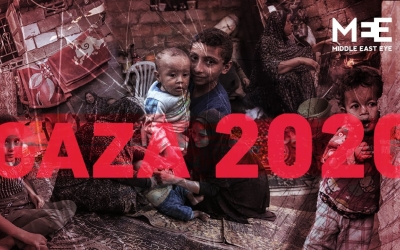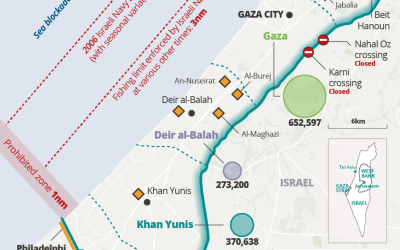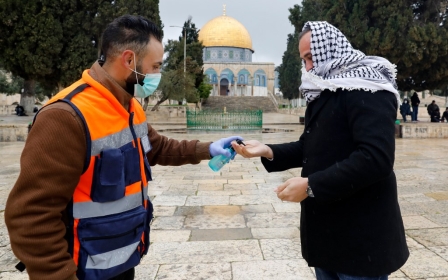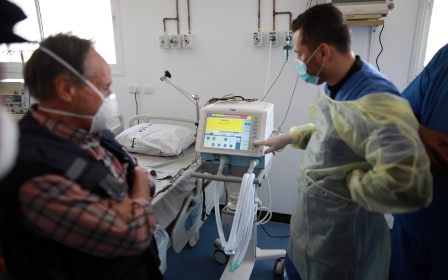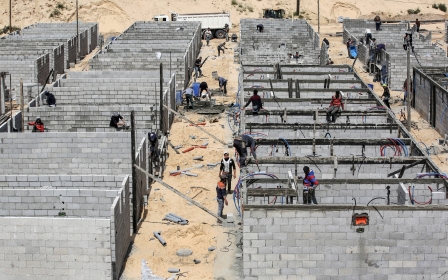Coronavirus: Hard work and ingenuity as Gaza rises to the challenge
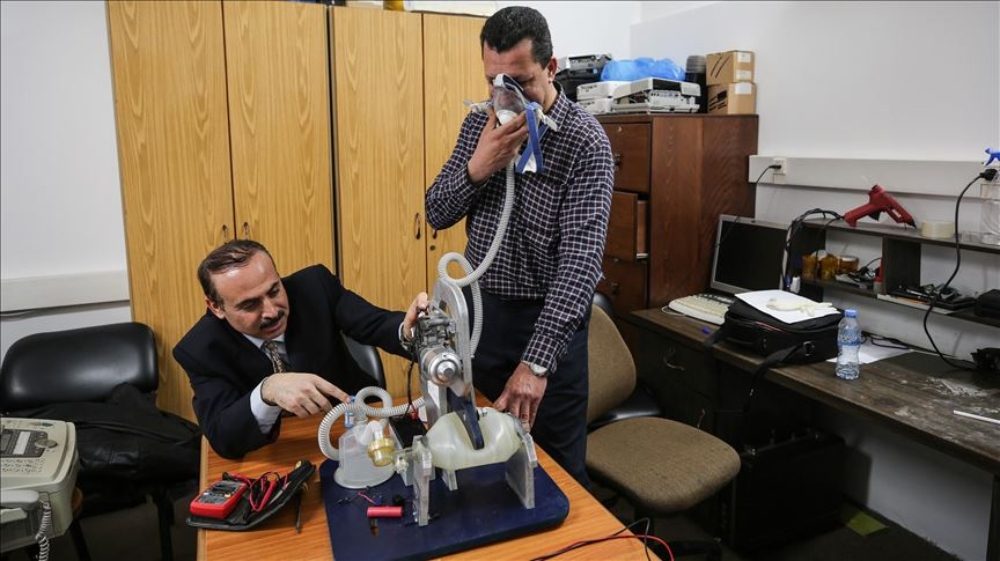
As the coronavirus pandemic tightens its grip on the world, Palestinians in Gaza have demonstrated once again that necessity is the mother of invention.
The coronavirus has not spared the blockaded strip, as the Gaza Ministry of Health stated that as of 27 March, at least 13 people had officially tested positive for it. Six of those have since recovered.
All the confirmed cases had been travelling outside of Gaza and have been placed in quarantine by the health ministry in a centre near the border with Egypt, along with other suspected cases.
But while residents of Gaza have been particularly fearful of the potential effects of Covid-19 in an area already deeply strained by the effects of nearly 13 years of siege, a spirit of helpfulness and solidarity has gripped the Palestinian territory - as a number of individuals have launched initiatives to help Gaza and neighbouring areas through the pandemic.
Makeshift ventilators
Essam Khalaf and Ismail Sekhela are two engineering professors at the Islamic University of Gaza. Since late March, they have been working on producing alternative ventilators to complement the 56 currently present in Gaza's hospitals, which are having to serve a population of at least 2 million.
Taking into consideration the lack of material in Gaza due to stringent Israeli restrictions on imports, Khalaf and Sekhela have had to make do with available tools like sensors, air filters and fuses to build makeshift ventilators costing between $150 and $200 - compared to regular hospital ventilators, which can fetch anywhere between $5,000 and $50,000.
“The device pumps the air to the lungs regularly with the possibility of controlling the amount of air,” Sekhela explained to Middle East Eye.
He added that the device had been created to address the current situation amid fears that the Strip is ill equipped to handle a significant outbreak of coronavirus among its residents.
The two engineers told MEE that if they were given the means, they hoped to build 100 devices within 10 days. They added that they had already offered their device to the prominent al-Shifa hospital in Gaza City, where doctors had approved the makeshift ventilators and given feedback to improve them.
“This device will ease the pressure on hospitals due to the lack of ventilators in Gaza,” Sekhela said. “It is a flexible device built taking into account Gaza’s circumstances under the siege, like power cuts, so it works on AC and DC power systems.”
Rami Rohmi, a spokesperson of the Islamic University, told MEE that the device had yet to be used on patients.
“There is one copy and the health ministry has made some notes on it,” he said. “The university took these notes and ordered a team alongside the two engineers to build more devices for further examination.”
Rohmi estimated that more conclusive results on the effectiveness of the ventilators would appear in the coming week, while highlighting that the makeshift units had only limited functions compared to the original ventilators.
“The university is working on 100 devices funded by a businessman in Gaza but we can’t yet release the device until we make sure of its effectiveness,” Rohmi said. “The hundred will go to the health ministry for examination and only then can we use them if there is a coronavirus outbreak.”
Face masks and medical protective gear
Bashar al-Bawab, the owner of a sewing factory in Gaza, has switched all production to making medical supplies and protective outfits.
“We realise that the Palestinian market, especially in Gaza, lacks medical supplies. Face masks and hazmat suits could not easily be found or imported to Gaza due to the restrictions at crossings,” he said.
“We started at first by providing doctors and nurses in Gaza hospitals with protective costumes, then we kept producing in order to export to the West Bank and Israel,” Bawab added.
The factory produces more than 10,000 face masks daily - half of which it exports to Israel, Bawab said. The factory owner added that, thanks to a solid international network of relationships, he had also begun exporting laboratory coats to Europe.
The factory has been working amid challenging conditions - including 18 hours of electricity cuts per day.
Bawab said his efforts to contribute to fighting the coronavirus were hindered by the Israeli-led blockade.
“As we export our products to Israel to help humans amid these hard times of global pandemic, we fear losing access to raw materials that Israel bars from entering Gaza,” he explained.
“In these conditions, we all have to treat each other with humanity,” Bawab said.
“All humans around the world are facing the same challenges now, with different ways of dealing with them. Here in Gaza, we do what we can as businessmen and traders for our people, helping the world with our limited means.”
Middle East Eye propose une couverture et une analyse indépendantes et incomparables du Moyen-Orient, de l’Afrique du Nord et d’autres régions du monde. Pour en savoir plus sur la reprise de ce contenu et les frais qui s’appliquent, veuillez remplir ce formulaire [en anglais]. Pour en savoir plus sur MEE, cliquez ici [en anglais].


